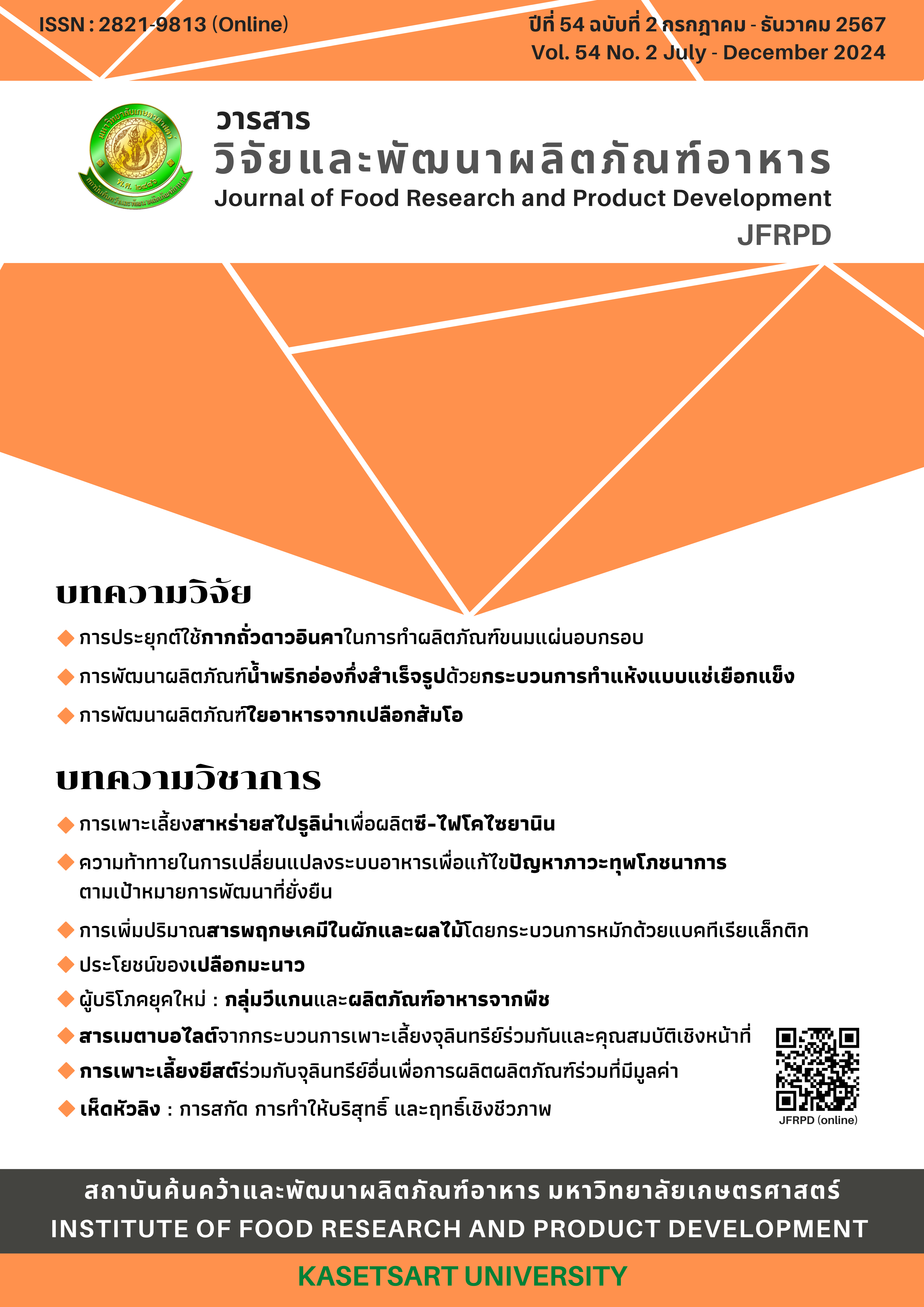The challenges in transforming the food system to address malnutrition issues and achieve the sustainable development goals
Main Article Content
Abstract
Dealing with malnutrition in all its forms is one of the critical challenges of public health management in each country towards sustainable development goals (SDGs). Experiencing malnutrition from early childhood or even during pregnancy increase the risk of illness and premature death. The cause of malnutrition is normally related to issues of poverty, instability in food supply, and lack of awareness about the importance of choosing beneficial foods for long-term health. Therefore, the government must develop a sustainable food system, which is necessary to guarantee food/nutrition security for all. Additionally, nutrition surveillance should be implemented and particularly focused on vulnerable group at risk of nutrition imbalances, including women, infants, children, and adolescents. If malnutrition issues are not prevented and addressed, it will lead to an increase in household health expenditure and slow economic growth. This perpetual cycle of poverty and illness can affect the socio-economic situation of a whole country, significantly.
Downloads
Article Details

This work is licensed under a Creative Commons Attribution-NonCommercial-NoDerivatives 4.0 International License.
References
WHO. Malnutrition. [Internet]. 2024 [cited 2024 Mar 21]. Available form: https://www.who.int/news-room/fact-sheets/detail/malnutrition
สำนักโภชนาการ กรมอนามัย. รายงานประจำปี 2565 เฝ้าระวังทางโภชนาการ. [อินเทอร์เน็ต]. 2565. [เข้าถึงเมื่อ 25 มี.ค. 2567]. เข้าถึงได้จาก https://nutrition2.anamai.moph.go.th/web-upload/6x22caac0452648c8dd1f534819ba2f16c/202303/m_magazine/37955/4261/file_download/13affb4dde0d884d8536cb0096eecca9.pdf
สำนักงานคณะกรรมการพัฒนาเศรษฐกิจและสังคมแห่งชาติ. เส้นทางประเทศไทยสู่เป้าหมายการพัฒนาที่ยั่งยืน. วารสารเศรษฐกิจและสังคม 2560; 54(4): 1-64.
เครือข่ายวิชาการเพื่อการพัฒนาที่ยั่งยืนของประเทศไทย. Sustainable development goals. [อินเทอร์เน็ต]. 2565. [เข้าถึงเมื่อ 27 มี.ค. 2567]. เข้าถึงได้จาก https://www.sdgmove.com/intro-to-sdgs/
IFPRI. Green revolution: curse or blessing? [Internet]. 2002. [cited 2024 Mar 28]. Available form: https://www.ifpri.org/cdmref/p15738coll2/id/64639/filename/64640.pdf
Kennedy E, Raiten D, Finley J. A view to the future: opportunities and challenges for food and nutrition sustainability. Curr. Dev. Nutr. 2020;4(4):1-3.
FAO. 2023. Contribution of terrestrial animal source food to healthy diets for improved nutrition and health outcomes – An evidence and policy overview on the state of knowledge and gaps. Rome, FAO. https://doi.org/10.4060/cc3912en
Gupta PM, Perrine CG, Mei Z, Scanlon KS. Iron, anemia, and iron deficiency anemia among young children in the United States. Nutrients. 2016;8:330.
Varzakas T, Smaoui S. Global food security and sustainability issues: the road to 2030 from nutrition sustainable health diets to food system change. Foods. 2024;13(2):1-29.
Neuenschwander M, Stadelmaier J, Eble J, Grummich K, Szczerba E, Kiesswetter E, et al. Substitution of animal-based with plant-based foods on cardiometabolic health and all-cause mortality: a systematic review and meta-analysis of prospective studies. BMC Med. 2023;21(404):1-16.
Alcorta A, Porta A, Tarrega A, Alvarez MD, Vaquero M. Foods for plant-based diets: challenges and innovations. Foods. 2021;10(2):1-23.
Filho PF, Andersson D, Ferreira JA, Taherzadeh MJ. Mycoprotein: environmental impact and health aspects. World J Microbiol Biotechnol. 2019;35(147):1-8.
Gibas-Dorna M, Zukiewicz-Sobczak W. Sustainable nutrition and human health as part of sustainable development. Nutrients. 2024;16(2):225.
FAO/WHO. United Nations decade of action on nutrition 2016-2025: priority actions on nutrition for the next five years. [Internet]. 2021. [Cited 2024 Mar 28]. Available form: https://www.fao.org/3/cb9467en/cb9467en.pdf

